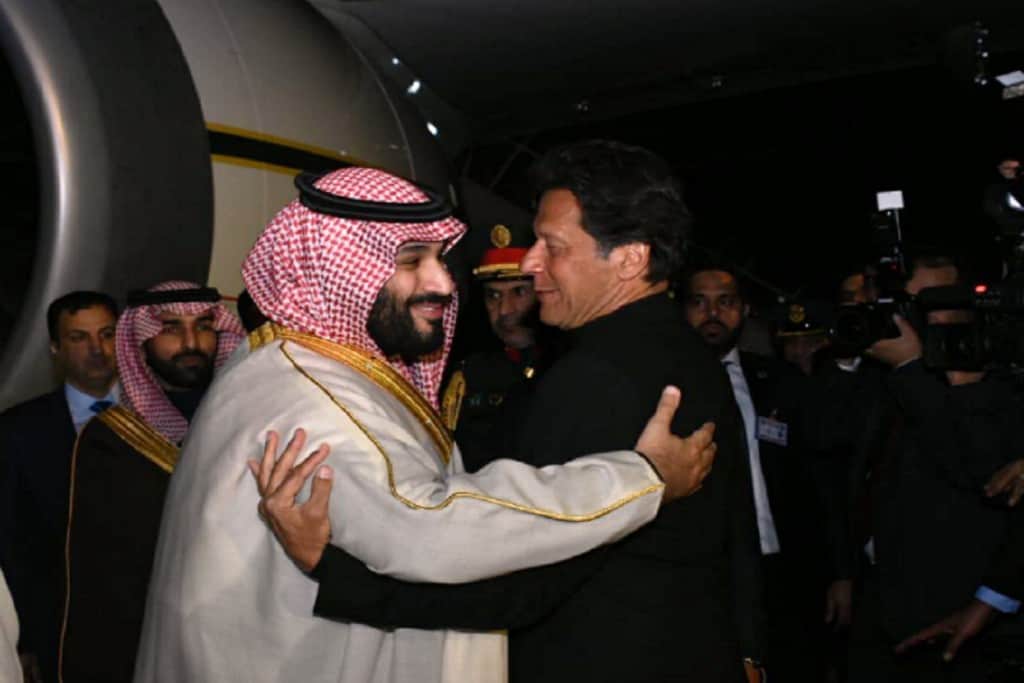By Denis Korkodinov
Pakistan, it seems, is increasingly entering the channel of Saudi politics. Islamabad tries to show its location to Riyadh much more often than with other states. But such a policy could turn Pakistan into a scapegoat in the international arena.
At present, there are hardly any misunderstandings between Pakistan and Saudi Arabia. A similar picture took shape over several decades, when official Islamabad tried to please the Saudis in every way. During this period of time, a dispute arose between the twp countries only once, when Pakistan did not accept to take part in the Yemeni conflict on the side of Riyadh.
There are long-standing ties between Pakistan and Saudi Arabia, which are not limited to the financial sphere. So, in the territory of the Saudi kingdom continues to work more than 2 million Pakistanis. In addition, almost every Muslim, and Pakistanis, among others, dream of making a pilgrimage to Mecca, which would be impossible in the event of aggression towards the Kingdom.
Drastic changes in relations between Pakistan and Saudi Arabia occurred in 2008, when a civilian government led by Asif Ali Zardari replaced Pervez Musharraf in Islamabad. The new Pakistani leader sought to balance his policies, flirting with both Tehran and Riyadh at the same time, which caused extreme concern on the part of the Saudis. In particular, it was thanks to them that the gas pipeline construction project connecting Pakistan and Iran was frozen.
While Nawaz Sharif was in power in Islamabad, there was a clear thaw in relations with Saudi Arabia. This was made possible by the personal relations of the Prime Minister of Pakistan with members of the royal family. In addition, the rapprochement between the countries was promoted by the commitment of Nawaz Sharif to the Sunni trend of Islam, which greatly impressed Riyadh, who considered the head of the Pakistani government as “his man.”
Imran Khan continued the policy of his predecessor as the leader of official Islamabad. He managed to enlist the support of the Crown Prince of Saudi Arabia, Mohammed bin Salman, who visited Pakistan and even officially approved Imran Khan as an “envoy” in Riyadh. Among other things, as a confirmation of Pakistan-Saudi friendship, the crown prince ordered the release of all Pakistani prisoners from Saudi prisons.
At the same time, Imran Khan was so loyal to Riyadh that it began to cause undisguised irritation of the local community. Moreover, the militants of the Liberation Army in the Pakistani province of Baluchistan can actually make an attempt to unleash a large-scale civil conflict, as a result of which Islamabad risks facing the threat of a coup d’état.
The situation is complicated by the fact that, expressing concern over the rapprochement of the Saudis with the leadership of Pakistan, Tehran, along with India, accused Islamabad of harboring international terrorists. This suggests that Iran can step up its military presence on the border with Pakistan in order to put pressure on the country’s prime minister.
In turn, the increased influence of the Ayatollah regime in Pakistan could trigger Riyadh to also increase its grouping of forces in the region, which creates a high probability of a direct armed clash with Iranian armed formations. Thus, the position of Pakistan in the system of geopolitics is in a stalemate. Saudi Arabia and Iran continue to increase pressure on the country’s leadership. In turn, India creates non-stability on the border with Pakistan, and Beijing intends to impose sanctions on Islamabad for obstructing Chinese investment.
The special interest of the Saudis in Pakistan consists primarily in the pursuit of their geopolitical interests, which are directed against Iran. In this, Riyadh’s plans in relation to Pakistan almost completely coincide with those of Washington, which also intends to prevent Tehran’s influence.
The United States is also seeking to weaken Pakistan because they consider it guilty of the failure of the American mission in Afghanistan, despite the fact that official Islamabad has repeatedly stated that it cannot bear any responsibility for Washington’s foreign policy failures.
Together with this, the rapprochement of the Pakistani leadership with Beijing was the last straw of patience of the White House administration. The pressure on Iran only aggravates the situation in which Islamabad risks becoming the scapegoat.
(The opinions expressed in this article are solely those of the author and do not necessarily reflect the views of World Geostrategic Insights)







